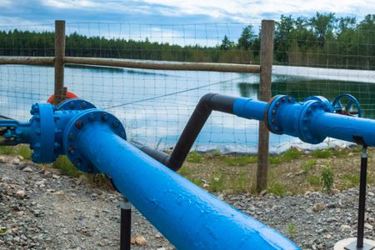Delaware River Officials Prohibit Fracking Wastewater Discharge


Officials charged with protecting one of the nation’s most critical waterbodies have moved to block a controversial source of pollution.
“The Delaware River Basin Commission (DRBC), the agency that oversees drinking water quality for the watershed, voted to prohibit the discharge of wastewater from fracking operations into the region’s waterways or land,” WHYY reported. “The DRBC said its decision will control future pollution, protect public health, and preserve the waters of the Basin — while strengthening policies around the exportation and importation of water, including wastewater, into and from the Basin.”
Fracking, also known as hydraulic fracturing, utilizes high-pressure water injection to extract fuel from the ground, but the resulting wastewater, known as “produced water,” has caused numerous environmental and public health concerns around the country. For instance, earlier this year, a study found that Texas is producing a “massive amount” of produced water that cannot be reused.
And the Delaware River Basin has been an epicenter for produced water concerns for years. In 2017, the DRBC moved to ban hydraulic fracturing in the area. And it has been keeping a close eye on fracking operations for more than a decade.
“About one-third of the Delaware River Basin lies above natural gas deposits,” according to WHYY. “Since 2009, all natural gas production activity must go through a DRBC review process. That’s because of concerns about the water withdrawals needed for drilling, as well as the impact on water quality from the drilling practice.”
Despite the recent vote, however, some local environmental advocates have lingering fears that source water won’t be thoroughly protected.
“...the Delaware River Basin Commission did leave in place significant loopholes that leave our watershed at risk from toxic frack wastewater that can be brought into our watershed for treatment, storage, disposal, use and/or reuse,” the Delaware Riverkeeper Network claimed, per Levittown Now. “The ramifications of these gaping loopholes leave our watershed in peril from serious and irreversible damage due to the fracking industry.”
It remains to be seen how this latest action by the DRBC safeguards source water, but it’s clear that hydraulic fracturing is an increasingly controversial topic for the wastewater treatment industry and water quality advocates alike.
To read more about how hydraulic fracturing operations treat their wastewater, visit Water Online’s Produced Water Solutions Center.
